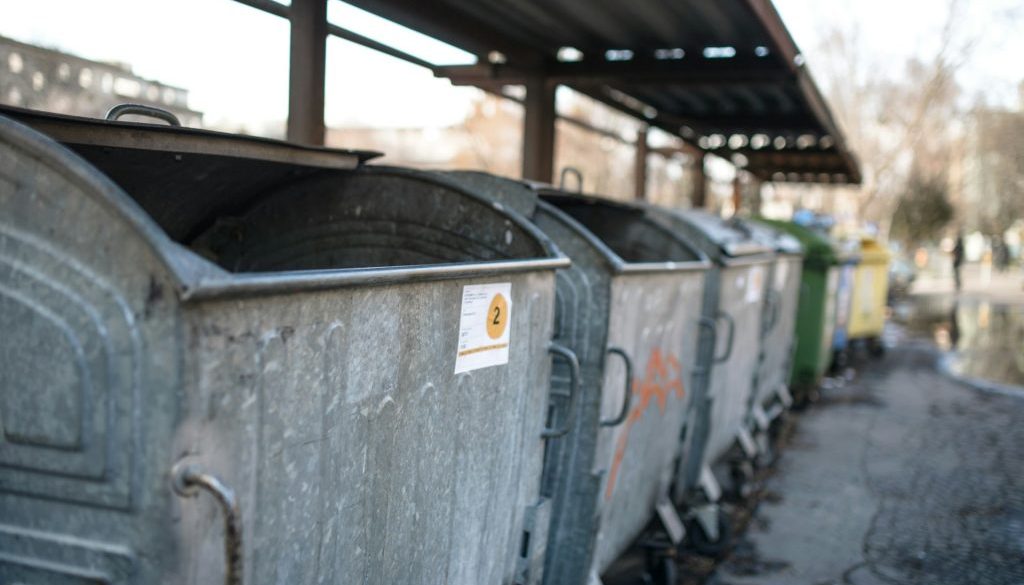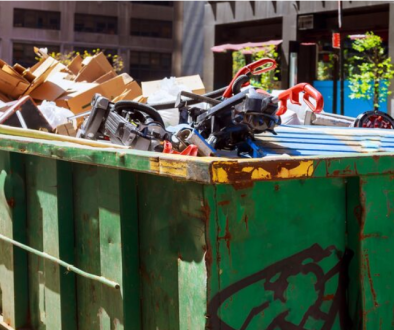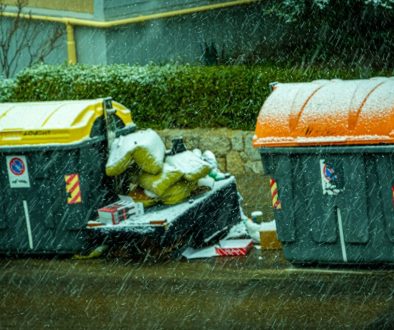Cold months can make many jobs a lot harder, and handling waste is no exception. The weather slows things down and rubbish seems to pile up faster when you least expect it. If you’re working on a site during winter or getting a business area ready for the season, keeping things clear and under control helps everything stay on schedule. That’s why it can still make sense to hire an open skip, even when the weather isn’t ideal. With a bit of know-how and some forward planning, an open skip can work just as well in winter as it does any other time of year.
Choosing the Right Skip for Bad Weather
An open skip might not have a lid, but that doesn’t mean it can’t handle winter jobs. The key is in choosing the right size and giving some thought to where it goes. Smaller skips are often easier to manage in tight spaces and are quicker to fill and swap if needed. On bigger sites, a larger skip might be worth it, especially if a lot of waste is expected straight off.
Where you place the skip matters too. Pick a spot that stays clear of puddles or ice and makes moving rubbish easier for whoever’s loading. Try to avoid sloped ground or anywhere that turns into a slip risk when it rains or freezes. If the skip ends up in the wrong place, it can block working paths, delivery zones, or even drains.
Having someone familiar with winter setups can make a big difference. Professional help means fewer surprises, better placement, and fewer delays when the weather turns. Enviro Skip Hire provides a range of open skip sizes, from 4-yard midi skips to large roll-on roll-off skips, with guidance on the best options for seasonal and site conditions.
What to Watch for When Using Open Skips in Cold Weather
Cold, wind, and rain bring their own set of headaches when you’re trying to keep a work zone clean. Loose rubbish can blow across the site, and anything left out in the open can get heavy once it’s soaked. That’s why how you load the skip really matters.
• Put the heavier or larger items at the bottom so things don’t shift around or tip
• Use a cover, like a tarp, when the skip’s not in use to help keep things dry
• Pack items evenly to prevent mess and make the most of the space
It’s also smart to plan for more frequent waste removal when bad weather is expected. Wet rubbish takes up space faster, and if the skip gets too full before the next pickup, the job space starts to feel crowded. Regular collections mean you can keep things moving without stop-start clean-up jobs.
For added site flexibility, skips from Enviro Skip Hire can be delivered or exchanged Monday to Saturday, which is especially helpful for winter business sites needing quick turnaround.
Planning Rubbish Disposal Around Shorter Days
With the days getting darker sooner, outdoor work tends to shift earlier, and there’s less time in the afternoon to sort through loads or add to the skip. That means waste decisions can’t be pushed back. If you wait until end of day to tidy up, you might be stuck doing it in poor light or risky conditions.
Think about loading waste in smaller chunks through the day instead of leaving it all to the end. This keeps workstations clear and gives workers safer footing around the skip.
• Plan jobs with early light in mind to get waste sorted safely
• Make sure paths to the skip are clear before frost or ice hits
• Keep collection times steady to manage rubbish before it spills over
Even on short projects, a set plan for rubbish works better than waiting for it to pile up. No skip should be so full that it becomes hard to use or makes the space unsafe around it.
Seasonal Waste Types That Build Up Fast
Not all rubbish is the same once the cold sets in. Some waste just gets heavier, messier, or harder to manage. This is common during winter fit-outs, shop clearances, or quick makeovers done before the holidays. You’ll often find a mix of bulky and soggy rubbish that needs more attention than typical summer loads.
• Wrapping and packaging from winter goods
• Damaged stock or signs from old displays
• Scrap wood, leftover decorations, or broken fixtures
Once rain or frost hits that kind of rubbish, it gets harder to lift and takes up more space. Wet packaging turns into thick clumps, and broken frames or boards freeze together. Moisture also adds weight fast, which could lead to overloaded skips if not monitored.
It also helps to keep track of anything that shouldn’t go in the skip, like items with batteries or liquids. Sorting that out ahead of time keeps waste safe and the skip usable.
Please note, as stated by Enviro Skip Hire, certain items such as fridge freezers, asbestos, plasterboard, and hazardous waste must not be placed in open skips, so always review the guidelines before loading.
Clear Sites, Smooth Jobs: Why Winter Waste Plans Matter
The better our plan, the easier winter clean-ups get. Open skips do their job well, even in cold or damp weather, but they work best when used the right way. Picking a skip size to match the job, setting it down where it’s safe, and clearing out waste before it becomes a problem all help keep the job moving.
Whether you’re running a busy café in Cheshire or fixing up a shop front ahead of the holidays, winter jobs don’t leave much room for clutter. With things like bad light and frozen paths making sites less safe, a steady waste flow helps cut down on worry. The more we stay ahead of it, the less stress there is at the end.
Planning ahead doesn’t take a lot of time, but it can save a whole load of trouble. Keep waste under control, even when the weather tries to slow everything down, and the rest of the work has a better chance to move with it.
Managing seasonal waste in Cheshire doesn’t have to slow down your projects during the winter months. With shorter days and bulkier rubbish, a smart solution is to hire an open skip to keep your site safe and organised. At Enviro Skip Hire, we help you plan ahead and maintain efficiency throughout the colder season. Give us a call to get your site waste sorted before the weather changes.




